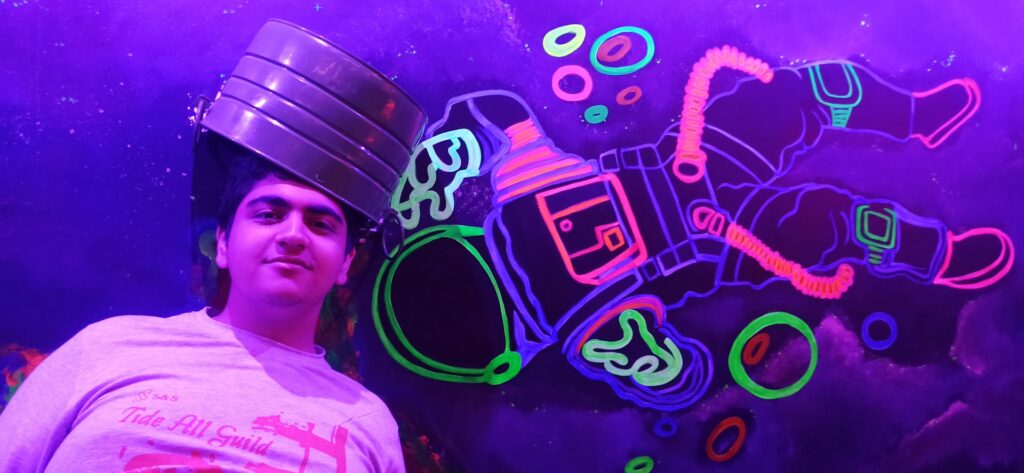
Nihilism in Shamanism
The concept of nihilism suggests that life is meaningless and lacks purpose. This idea may seem to contradict the core tenets of shamanic wisdom, which emphasizes the interconnectedness and sacredness of all life. However, upon closer examination, there are subtle parallels between these seemingly divergent worldviews.
Shamanic traditions recognize the impermanence of existence and that everything is constantly changing and evolving. This recognition of impermanence can lead to disillusionment with the material world and its temporary pleasures, which aligns with some aspects of nihilism.
However, shamanic wisdom also emphasizes the cyclical nature of existence, suggesting that death is a transition to another phase of being rather than an end. This cyclical perspective offers a counterbalance to the nihilistic view of life as meaningless, since it suggests that there is an ongoing pattern of creation, destruction, and renewal.
Furthermore, shamanic practices involve journeys into non-ordinary states of consciousness, where individuals encounter the spirit realms and gain insights into the nature of reality. These experiences can challenge conventional notions of meaning and purpose, leading to a deeper understanding of the interconnectedness of all things and the underlying unity of existence.
In this sense, shamanic wisdom can be seen as a kind of “enlightened nihilism,” one that embraces impermanence and interconnectedness while simultaneously recognizing the inherent value and sacredness of life. This perspective allows individuals to navigate the complexities of existence with equanimity and authenticity, even in the face of challenges and suffering.
Therefore, while nihilism and shamanic wisdom may appear to be opposing worldviews, there are underlying parallels that suggest they are not entirely incompatible. Shamanic wisdom, with its emphasis on impermanence, interconnectedness, and the cyclical nature of existence, provides a framework for approaching nihilism in a more nuanced and enlightened way.
Nihilism in Existential Philosophy
Nihilism is a complex and multifaceted philosophical concept that has been explored by various thinkers throughout history. In the context of existential philosophy, nihilism is often understood as the belief that life is meaningless and devoid of inherent purpose. This perspective challenges traditional notions of meaning and value, prompting individuals to question the foundations of their existence.
Existentialist philosophers have grappled with nihilism in various ways, recognizing its potential to lead to despair and apathy, but also seeing it as an opportunity for personal growth and authenticity. They have explored the implications of a meaningless universe and the challenges of creating meaning in a world that appears indifferent to human concerns.
One of the central figures in existentialism, Friedrich Nietzsche, argued that nihilism is a necessary step in the development of a truly authentic human being. He believed that confronting the absurdity of existence was essential for individuals to break free from the constraints of societal norms and conventional morality. By embracing nihilism, individuals could forge their own values and create their own sense of meaning, rather than relying on external sources.
Other existentialist thinkers, such as Jean-Paul Sartre and Albert Camus, also engaged with nihilism, exploring its implications for human existence. Sartre emphasized the importance of individual choice and responsibility in a world without inherent meaning. He argued that individuals must create their own values and define their own purpose, even in the face of absurdity. Camus, on the other hand, focused on the need to find meaning in the midst of suffering and death. He believed that individuals could find meaning in their actions, relationships, and creative endeavors, even as they acknowledged the inherent meaninglessness of the universe.
Existentialism’s engagement with nihilism has had a profound impact on modern thought. It has challenged traditional assumptions about meaning, value, and existence, prompting individuals to reconsider their own relationship with the world. While nihilism can be a source of despair, it can also be a catalyst for personal transformation and growth. By grappling with nihilism, individuals can develop a deeper understanding of themselves and the world around them, and they can create their own meaning and purpose in a seemingly meaningless universe.
Enlightened Nihilism; A Synthesis of Existentialism and Shamanism
Nihilism, the philosophical belief that life is meaningless and without inherent purpose, has long been a source of existential angst for many individuals. However, in recent years, a new perspective on nihilism has emerged, one that seeks to reconcile the seemingly contradictory worldviews of existentialism and shamanism. This perspective, known as enlightened nihilism, offers a path to meaning and purpose in a world without inherent meaning, while also respecting the sacredness of existence.
At the heart of enlightened nihilism lies the recognition of impermanence, the constant flux and change that characterize all aspects of existence. This recognition, drawn from shamanic traditions, challenges the notion of an enduring self or a fixed reality. Instead, it suggests that we are constantly evolving and transforming and that our identities and experiences are fluid and ever-changing.
Emerging from this understanding of impermanence is the embrace of interconnectedness, a concept central to both existentialism and shamanism. Enlightened nihilists recognize that all beings are intimately connected, bound together by a web of relationships and influences. This interconnectedness extends beyond the human realm, encompassing the natural world and the cosmos as a whole.
The recognition of impermanence and interconnectedness leads to an appreciation for the cyclical nature of existence, a concept prevalent in shamanic worldviews. This cyclical perspective suggests that death is not an end but rather a transition to another phase of being, a continuation of the journey of existence.
Drawing from existential philosophy, enlightened nihilism emphasizes the importance of individual choice and responsibility in a world without inherent meaning. Individuals are not bound by external dictates or predetermined destinies. Instead, they are free to create their own values and define their own purpose, even in the face of the challenges and uncertainties of existence.
In this context, the concept of sacredness takes on a new meaning. Enlightened nihilists recognize the profound mystery and wonder of the universe, but they do not ascribe it to a divine or supernatural force. Instead, they see the sacredness inherent in all aspects of existence, from the smallest atom to the vast expanse of the cosmos.
Enlightened nihilism is not a passive acceptance of meaninglessness. Instead, it is an active embrace of the challenges and possibilities inherent in a world without inherent meaning. It is a way of approaching life with authenticity and openness, without the need for external validation or predetermined goals.
Enlightened nihilism offers a way to navigate the complexities of existence with a sense of equanimity and authenticity, even in the face of challenges and suffering. By embracing the impermanence, interconnectedness, and cyclical nature of existence, individuals can create their own meaning and purpose in a seemingly meaningless universe. They can approach life with a sense of wonder and curiosity, appreciating the sacredness inherent in all aspects of existence.







